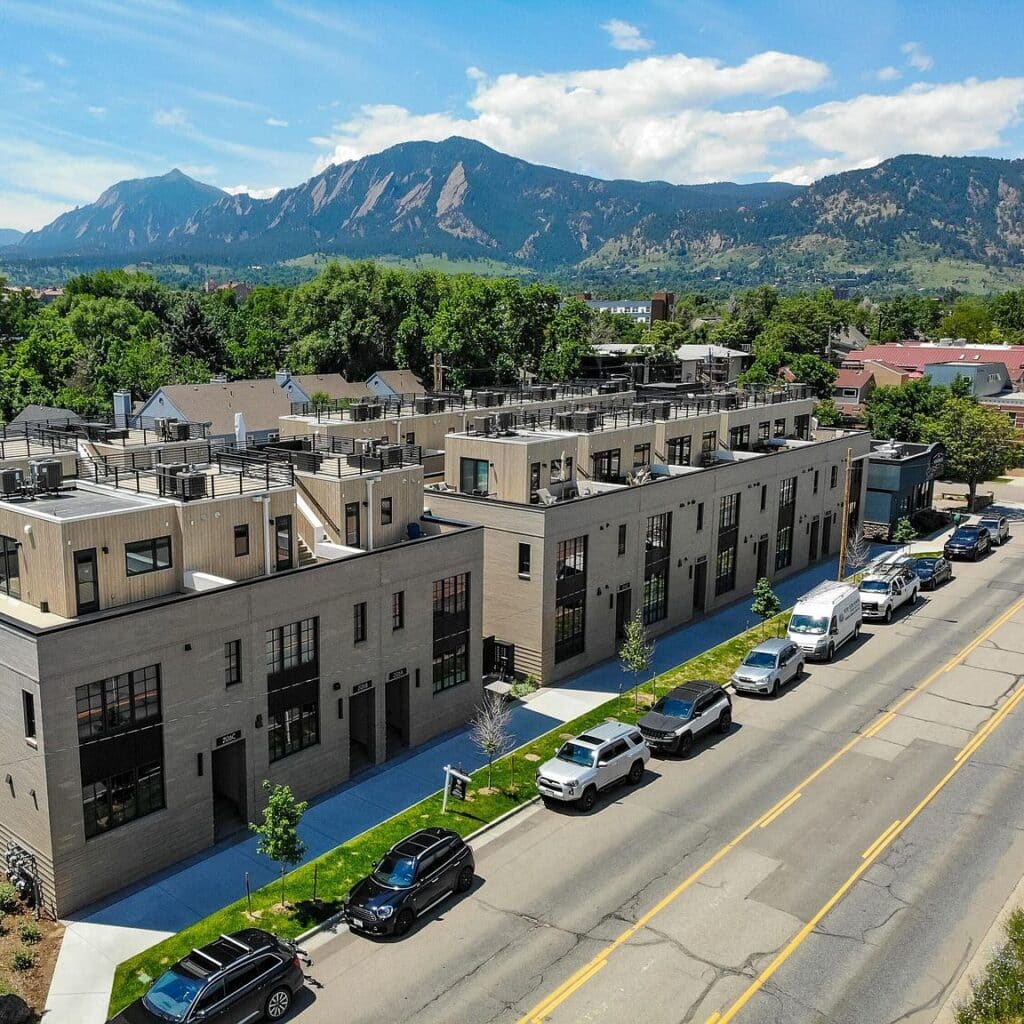Addressing the Problem: The Impact of Parking Mandates
For decades, local regulations have required developers to include a minimum number of off-street parking spaces in new developments. These costly and excessive parking mandates increase construction costs —each parking space can add $5,000 to $65,000 to a project’s budget—and result in an oversupply of parking spaces. Such requirements contribute to higher housing prices, block small businesses, and hinder the development of walkable neighborhoods.
How does HB24-1304 addresses the issue?
Effective June 30, 2025, HB24-1304 prohibits municipalities and counties within Colorado’s MPOs from enacting or enforcing minimum parking requirements for:
- Multifamily residential developments
- Adaptive reuse projects with at least 50% residential use
This applies to developments located within a quarter-mile of transit stops with service frequencies of 30 minutes or more frequent. The Department of Local Affairs (DOLA) published maps designating applicable transit service areas.
While the bill removes parking minimums, it does not prevent developers from including parking in their projects. Evidence from other cities that have eliminated parking mandates shows that builders still provide plenty of parking for their residents and have the flexibility to “right-size” parking supply based on the specific characteristics of each project rather than arbitrary government mandates. Under HB24-1304, local governments may still:
- Enforce maximum parking limits
- Require parking spaces to support electric vehicle charging
- Mandate parking fees or participation in shared parking programs
- Impose bicycle parking requirements
Implementation & Next Steps
- Local governments within MPOs must adjust their zoning codes to comply by June 30, 2025.
- In December of 2024, state agencies published best practices and provide technical assistance to local governments for optimizing parking supply and management.
Related Policies & Further Reading
For further exploration, related policies include:
- Read our Colorado Parking Reform Primer Materials:
- Visit the Department of Local Affairs’ Parking Minimums website
- Read the state’s Best Practices in Parking Management Strategies for Colorado Communities

